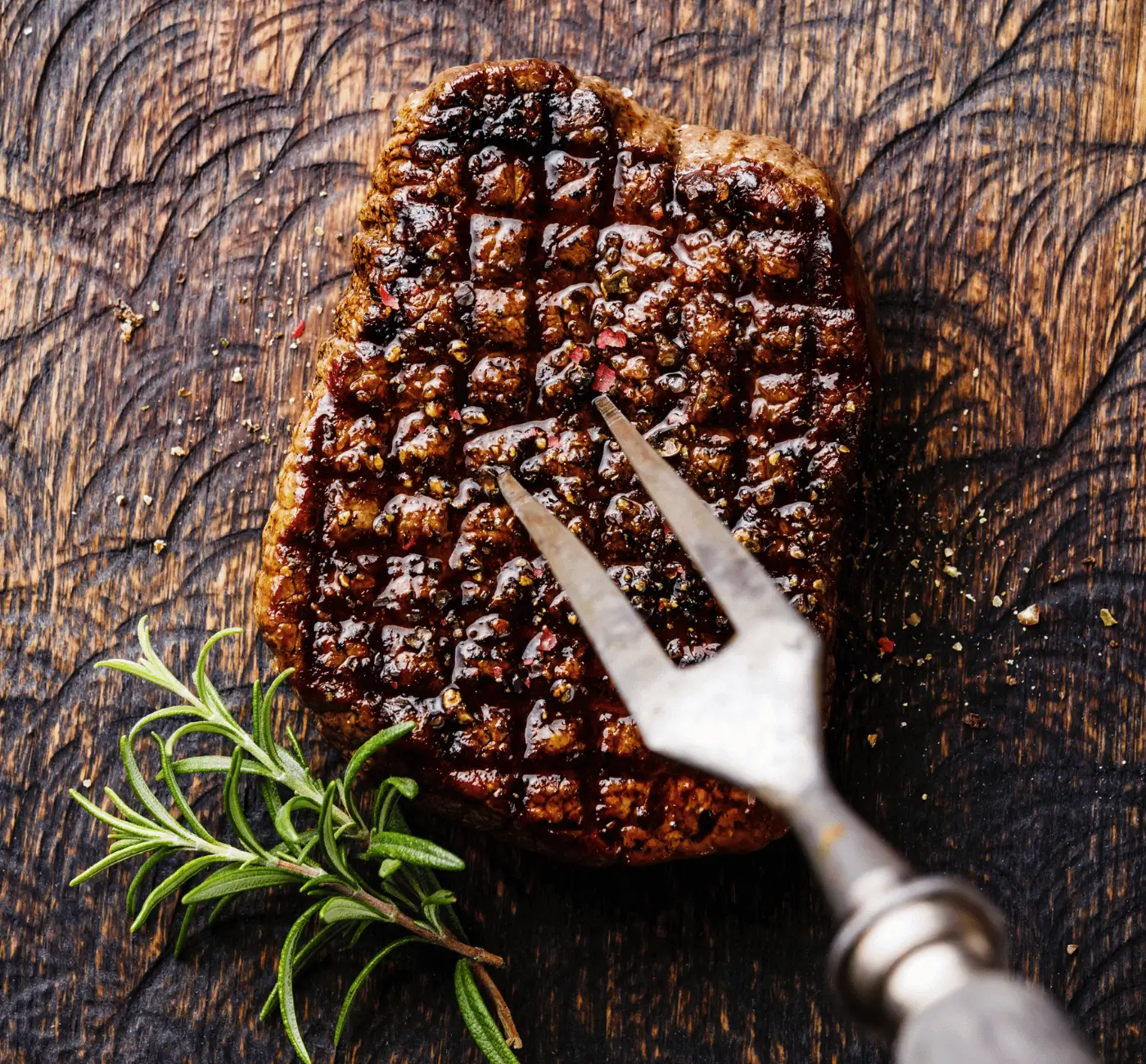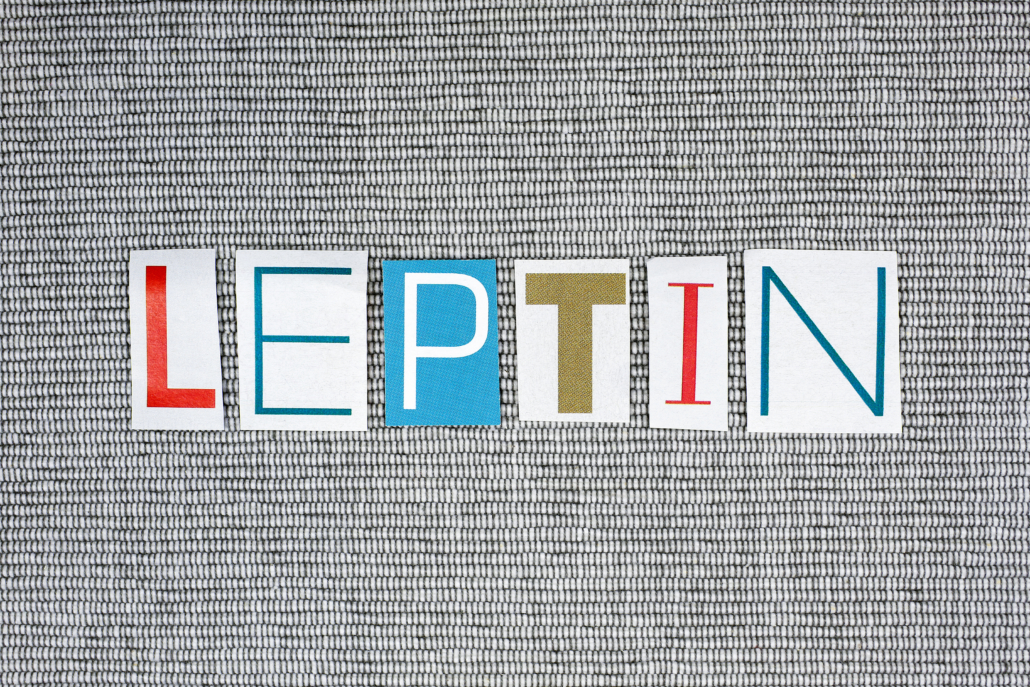
Overcoming food addiction, losing weight, and reclaiming your metabolic health have little to do with willpower and cutting calories and a lot more to do with leptin resistance. [1]
In fact, research suggests that leptin resistance may be the main factor in metabolic disorders, of which obesity is just one of many symptoms. [2]
In this article, we’ll explore what leptin is, what causes leptin resistance, and the lifestyle changes that can help overcome leptin resistance.
Leptin is a hormone produced by fat cells. It’s often referred to as the “satiety” or “starvation” hormone because, when functioning normally, it keeps you from starving or overeating. [3]
Leptin is produced by fat cells. When secreted from fat, leptin enters your bloodstream, where it’s carried to your brain and eventually to your hypothalamus. [4] [5]
When eating enough or too much, high levels of leptin tell your brain that
When not eating enough low levels of leptin tell your brain that
When you have leptin resistance, leptin’s ability to keep you from overeating is impaired.
In addition to regulating energy intake and use, leptin plays a role in immunity, brain function, and fertiltiy. [6] [7]
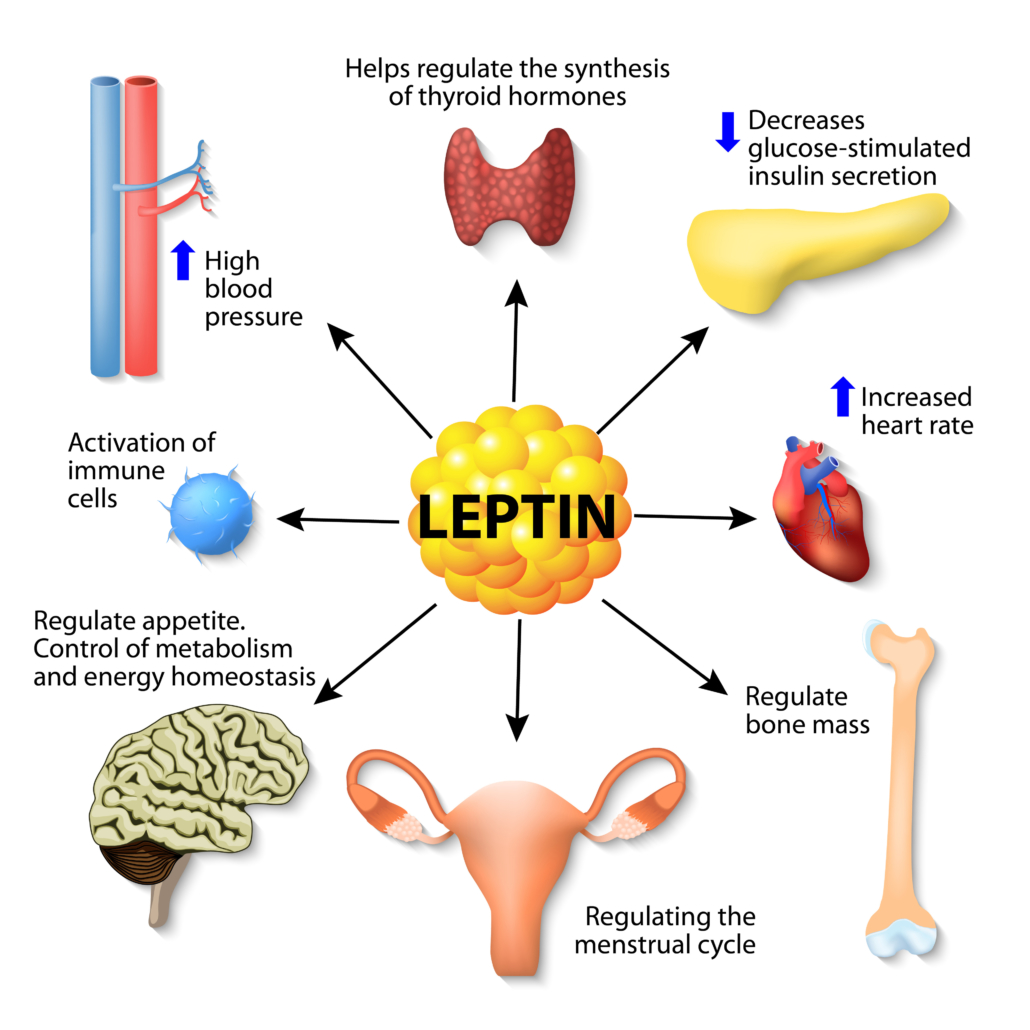


Leptin resistance is often seen in people who are obese (with abundant leptin-secreting fat cells), but it can occur in non-obese people.
More fat and more leptin should naturally lead to appetite suppression and fat burning. However, when leptin signaling is not functioning, the brain continues to send signals that your body is starving even when you’ve already stored excess energy as fat.
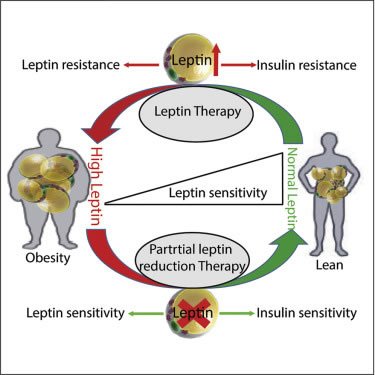
When you’re brain thinks you’re starving it compels you to behave in order to restore body fat reserves. This means [8] [9] [10] :
In light of these findings, leptin resistance is now considered the main biological factor driving obesity. [11]
In other words, lacking willpower and succumbing to binging on food while exercising less is not the primary cause of obesity but the consequence of a hormonal defect. [12]
With leptin resistance, willing yourself to cut calories and exercise more is essentially impossible.
Researchers suggest that the root cause of leptin resistance is likely consuming a high-carb grain-based diet that our leptin signaling system is not evolved for.

In this 2005 study, researchers propose that lectins–a type of sticky protein in grains, cause leptin resistance by compromising metabolism and/or by binding to leptin receptors. [13]
The idea that leptin resistance is rooted in consuming post-agrarian foods, especially refined grains and sugars, makes sense when considering the abundance of evidence that for nearly 2 million years, the human metabolic system evolved with a hyper-carnivorous diet of mostly fatty meat. [14]
Grains and sugars were extremely rare for our hunter gatherer ancestors. In many ways, these “foods” can be considered toxic to our metabolic systems, especially when consumed in modern quantities.
The view that grains and sugar are to blame for leptin resistance is further developed by Harvard researcher David Ludwig.
Dr. Ludwig’s research shows that elevated levels of glucose (from eating grains and sugar) is toxic in the blood. The body responds by producing the hormone insulin that sequesters toxic glucose in fat cells. This rapid sequestering of nutrients sends starvation signals to the brain. This is why when you eat sugar, you store more fat and feel sleepy. Your body thinks it’s starving and attempts to store energy. [15] [16]
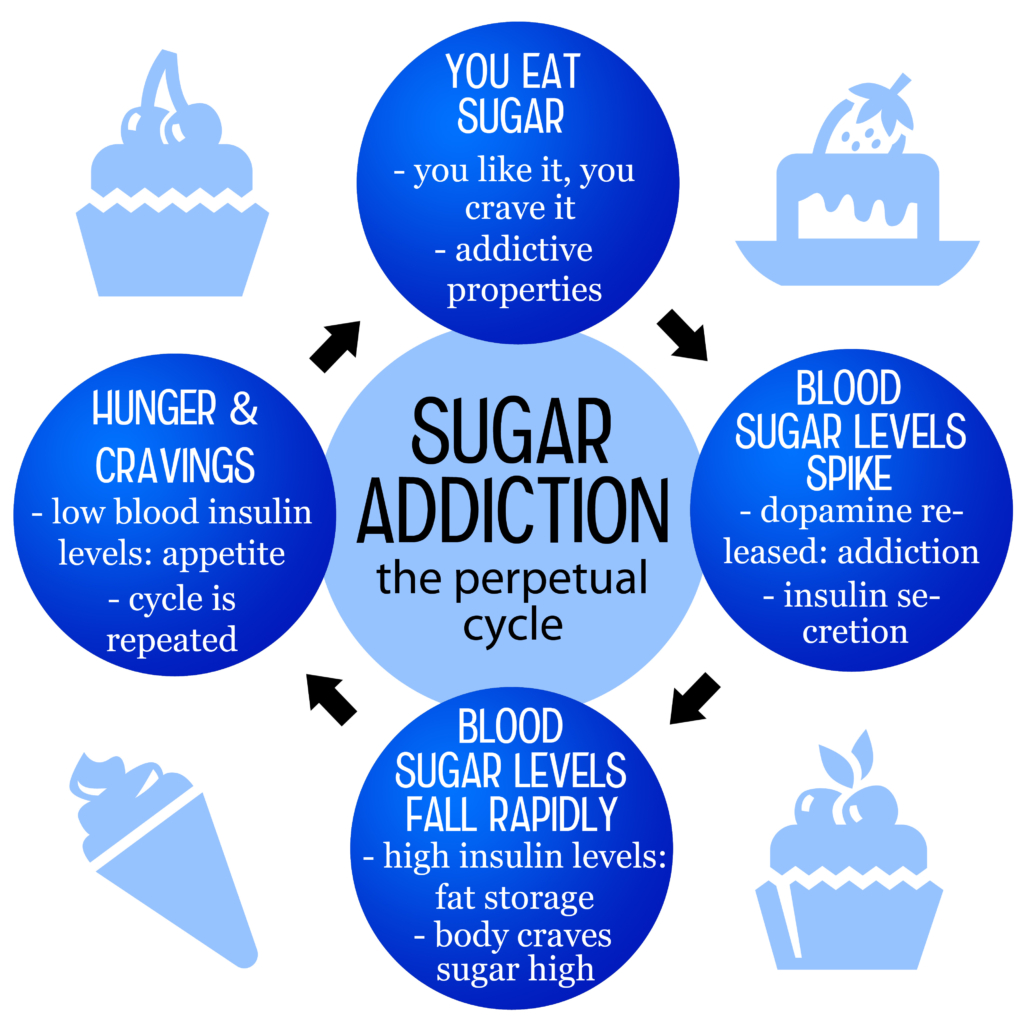
Inflammation has also been shown to be a factor behind leptin resistance. [17] Inflammation can disrupt proper hormone signaling in your hypothalamus–the area where leptin signaling occurs.
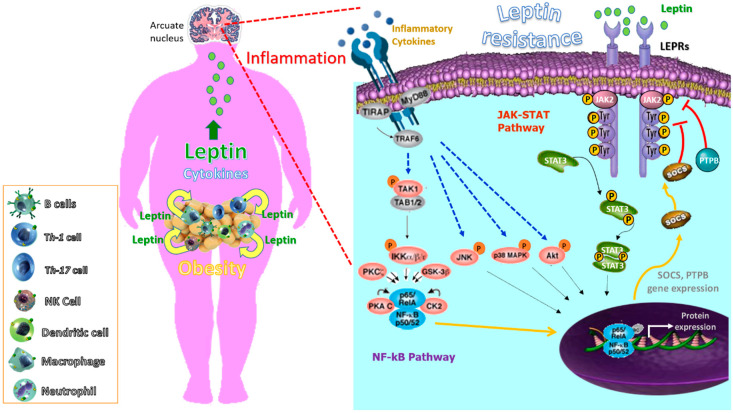
Source: Int J Mol Sci
Inflammation is also associated with consuming high-carb grains and sugar. [18]

Leptin resistance can take the form of a viscous self-reinforcing cycle where you crave and consume high-carb foods, store excess fat, and lack the motivation to move your body.
This chain reaction can contribute to diseases, including obesity, cardiovascular disease, and diabetes. [19]

Studies suggest that over 80% of people who lose significant weight on diets gain it back. [20] Leptin resistance may be a key to understanding why.
Even after losing weight from dieting, the brain doesn’t reverse leptin resistance, it just reduces leptin in the body, which results in increased hunger and reduced motivation, and biological calorie hoarding. [21] [22]
For our lean hunter-gatherer ancestors, losing weight was not a good thing, and our bodies will work to resist it.
Leptin resistance can be reversed, but it may require intensive diet and lifestyle changes to bring us into closer alignment with the lifestyles of our hunter-gatherer ancestors.
The first step in reversing leptin resistance is to cut out all processed and inflammatory foods.
Research suggests that intermittent fasting reduces inflammation in the brain and may in turn, improve leptin signaling while also inducing autophagy in the hypothalamus–thus further improving its functioning. [24]
Eating in according with your circadian rhythm times your food intake with the periods of the day when your metabolism is optimized. This means eating at or before sundown.
Improve your sleep hygiene: Poor sleep has been shown to disrupt leptin signaling. [25] [26]
Studies show that increasing physical activity may help reverse leptin resistance. [27]
Integrate intentional movement practices like
Leptin resistance is a hormonal defect that may be one of the main reasons why its so easy to overeat, gain weight, and struggle to lose it.
Leptin resistance is caused by consuming a standard American/Western diet high in carbohydrates from gains and added sugars, along with inflammatory vegetable oils.
The best and only proven way to reverse leptin resistance is to adopt a lifestyle that is more aligned with our ancestral ways of eating and moving. This means:
Fortunately, these three factors create a self-reinforcing system of metabolic healing and protection.



We’re a global community of seekers, healers, and doers committed to reclaiming health on our own terms. When you join the Kiltz Mighty Tribe (KMT), you’ll gain access to education, support, and collective wisdom.

